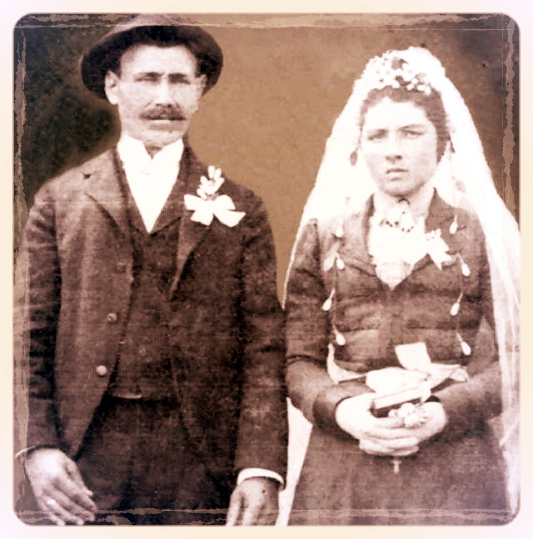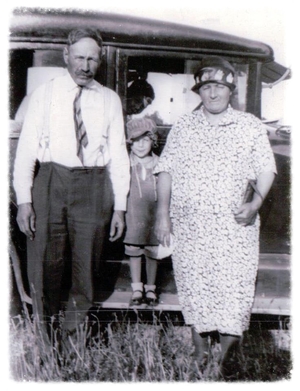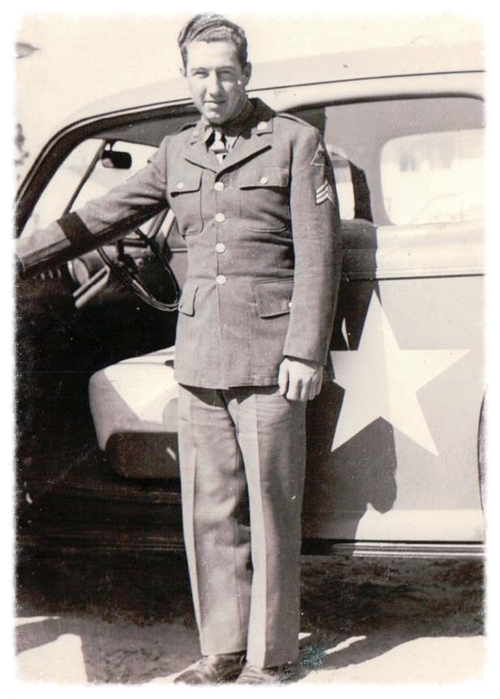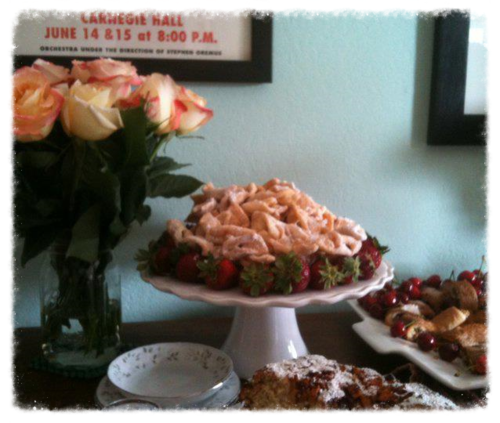Every Christmas my family makes our own version of Hungarian Christmas cookies that have been passed down from my great grandmother Gizella Czinder. According to family lore and the Hungarian Catholic Diocese records, Gizella was born and baptized on December 25th 1880 in northwestern Hungary and later immigrated to the United States to and marry Michael Czinder at St. Mary’s Greek Catholic Church in Youngstown Ohio.


No small task to pull together, our family’s version of the Christmastime treat is a cross between Hungarian Beigli and richer Slovic Kulachi, formed like Rugalach and rolled in granulated sugar (we simply call them “nut rolls”). These cookies are a source of pride in the family and a meditation on our heritage. The cookies are meticulously made from a butter or shortening cut dough (like pie), pulled together with milk and yeast and allowed to rise. We roll the dough out in sugar and stuff it with finely ground walnuts and sugar. With each batch, I can’t help but think of all of the women in my family. My mom, whose nut rolls are crisp from the melted sugar in contrast to the rich center – the sugar melts like a protective coating around the rich filling. My Aunt Karen, whose rolls are perfectly uniform pastries and the sugar is lightly dusted, adheres, but does not melt. Her pastry is fluffy and light. And of course, my Grandma Scott (her married name), who stored dozens of them in a large plastic ice cream container that once held Neapolitan ice cream for the kids at the annual Czinder family reunions.
Unlike the sorted history of the Dougherty side of my family, I have always thought of the Czinders as my people. Deeply connected to one another and family-oriented, our family has held over sixty annual family reunions. My grandmother Frances was the youngest of Gizella’s 14 children, and by the time I was old enough to appreciate the uniqueness of our family reunions, we counted as many as 300 family members across five generations. In fact, of the 395 people in the world with the Czinder surname, 66 who have our dying namesake live in Michigan, and most of them are my people, descendent from Gizella and Michael’s small farm in Nunica. The next-greatest concentration of Czinders are in Hungary.
Despite this knowledge and history, I learned more about what led to my family to leave Hungary on a recent flight in to Salt Lake. Upgraded, I found myself next to the head genealogist of the The Church of Jesus Christ of Latter-day Saints (LDS). Fascinated with the science of Geneology and impressed by his historical knowledge, we sought out the deeper history of Gizella to illustrate his experience and learn more about the LDS genealogical tradition.

Quickly working back to her home in northwestern Hungary (then the Austo-Hungary Empire), he helped me find Gizella’s baptism record. Gizella was born in a very diverse yet unstable region of the empire, among a community of ethnic Czechs, Slovenes, Serbs and Jews. According to my new friend, Gizella likely left the Austro-Hungarian Empire as ethnic and nationalist tensions grew in the region. He suggested, due to the region and our family spelling, that we may be descendent from ethnic Hungarian Czechs or Slovenes. At the time, he explained, Hungary’s ethnic minorities and their Jewish neighbors, were likely the first to be sent to, or persecuted as a result of, growing nationalist conflicts in the region that led to the first world war. Twenty years after Gizella landed in the US and at the end of WWI, her small county was divided in to three: Hungary, Austria, and Yugoslavia (now Kosovo, Serbia, and Montenegro). The ethnic diversity of the region was all but eliminated during World War II by the Nazis, the Hungarian Arrow Cross Fascists, and Mussolini’s forces. He urged me to track the decedents of Gizella’s once-neighbors as the region was divided by the world wars. Gizella lived to see her four youngest sons fight with the Allies in WWII and return home safely – a war they might not otherwise have survived. She died at the age of 70 in 1951.

This week I am baking Gizella’s kulache and gifting them to friends and family, as is my family tradition. As persecution and fear fuels border crossings and their closing, it is not lost on me what a gift it is to be able to bake and share Gizella’s cookies. Growing up, my dad memorably said to me, “it is a coincidence of life that you were born at this moment in time in this place, do not confuse coincidence as entitlement.” While not the cheeriest of holiday messages, it is an important reflection on the miracle of, and uncertainty of, life on this planet.
This holiday season, I feel a renewed sense of commitment to make sure my home is a welcoming and safe place. This includes keeping an open mind and an open heart. It means finding ways to share the fortune I have experienced with others who seek out the U.S. for a better life. This year, Eric and I are committing to finding ways to support refugee families in Tucson with the acts of support we are capable of providing at this moment in our lives – a guided trip to the grocery store to help orient the recently relocated, an invitation for dinner at our home, help writing and formatting a resume. Or perhaps, something as simple as a gift of Hungarian Christmastime cookies to say “welcome.”
Czinder Family Nut Rolls
This recipe is considered a family gift – I am happy to share with those who will enthusiastically bake and relish sharing the tradition. Email me at anne@illumeadvising.com.
